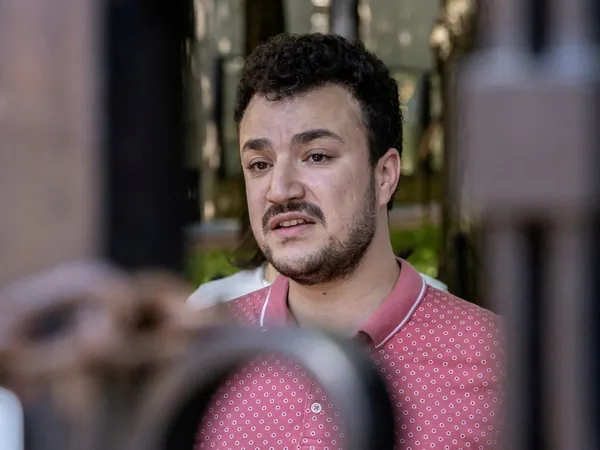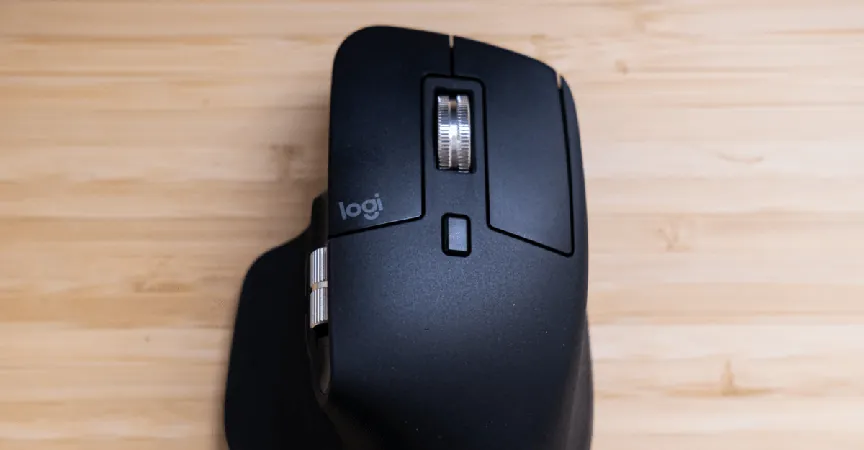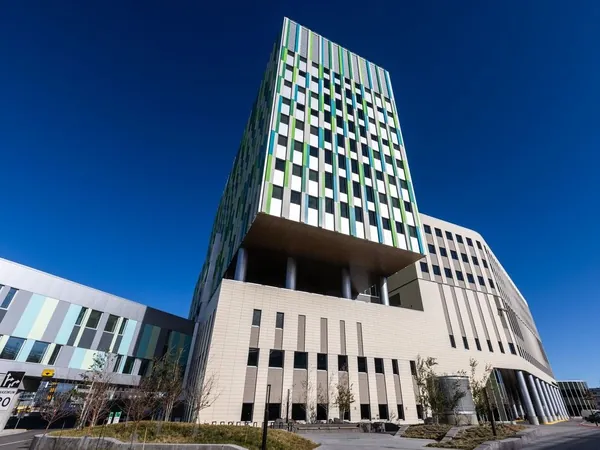
Deportation Battle: US Judge Rules on Pro-Palestine Activist Mahmoud Khalil
2025-04-11
Author: Emily
Controversial Ruling on Pro-Palestine Activist
In a striking legal development, a US immigration judge has paved the way for the deportation of Mahmoud Khalil, a Columbia University graduate student and permanent resident, following his involvement in pro-Palestine protests. This decision comes just a month after Khalil’s arrest, raising alarms about the implications for free speech.
Judge's Decision Sparks Outrage
At a hearing in Louisiana, Judge Jamee Comans concluded that the government had sufficiently demonstrated that Khalil is removable. His attorney, Marc Van Der Hout, vehemently criticized the proceedings as a 'charade of due process,' arguing it represents a grave attack on Khalil's rights and the broader pro-Palestine advocacy movement.
Targeting Dissent Under the Guise of Security
The case against Khalil has drawn significant scrutiny, especially amid claims that the Trump administration is using immigration laws to silence dissenting voices. The government’s unusual approach relies on a provision allowing for the deportation of non-citizens whose presence is considered detrimental to US foreign policy.
Accusations Without Legal Charges
Notably, Khalil has not been charged with any crime. US Secretary of State Marco Rubio described his protests as 'antisemitic' in a court letter, suggesting that his activism creates a hostile environment for Jewish students, despite acknowledging that none of Khalil's actions violated laws. This raises critical questions about the intersection of lawful protest and immigration policy.
Supporters Rally Behind Khalil
Supporters, including Baher Azmy from the Center for Constitutional Rights, condemned the government’s stance, likening it to oppressive regimes. Khalil, during the hearing, passionately defended the importance of due process, claiming its absence in his case.
Family Fallout and Community Impact
Since his arrest on March 8—a traumatic event witnessed by his pregnant wife—Khalil has faced significant challenges in accessing legal support. His family and supporters express deep concern that this ruling sets a dangerous precedent, potentially criminalizing political advocacy.
A Fight for Justice Continues
Following the ruling, Khalil's legal team has until April 23 to seek a waiver, but this is far from the final chapter. In a parallel case, a New Jersey federal judge has temporarily halted the deportation process, as he deliberates on Khalil's constitutional rights to free speech.
A Demand for Change
Khalil's wife, Noor Abdalla, voiced her heartbreak, urging that no one should face deportation for speaking out against violence in Palestine. Activists emphasize the ruling's chilling effect on free speech and political expression, echoing concerns about the broader implications for anyone advocating for marginalized communities.
As this battle unfolds, the stakes are higher than Khalil's deportation; the future of free speech in the context of activism hangs in the balance.









 Brasil (PT)
Brasil (PT)
 Canada (EN)
Canada (EN)
 Chile (ES)
Chile (ES)
 Česko (CS)
Česko (CS)
 대한민국 (KO)
대한민국 (KO)
 España (ES)
España (ES)
 France (FR)
France (FR)
 Hong Kong (EN)
Hong Kong (EN)
 Italia (IT)
Italia (IT)
 日本 (JA)
日本 (JA)
 Magyarország (HU)
Magyarország (HU)
 Norge (NO)
Norge (NO)
 Polska (PL)
Polska (PL)
 Schweiz (DE)
Schweiz (DE)
 Singapore (EN)
Singapore (EN)
 Sverige (SV)
Sverige (SV)
 Suomi (FI)
Suomi (FI)
 Türkiye (TR)
Türkiye (TR)
 الإمارات العربية المتحدة (AR)
الإمارات العربية المتحدة (AR)